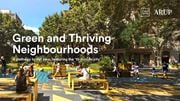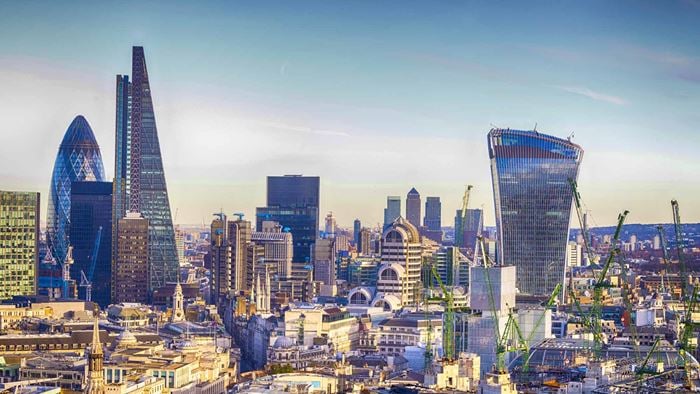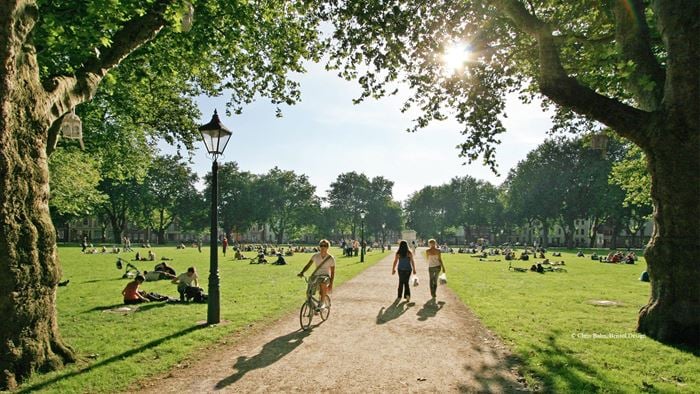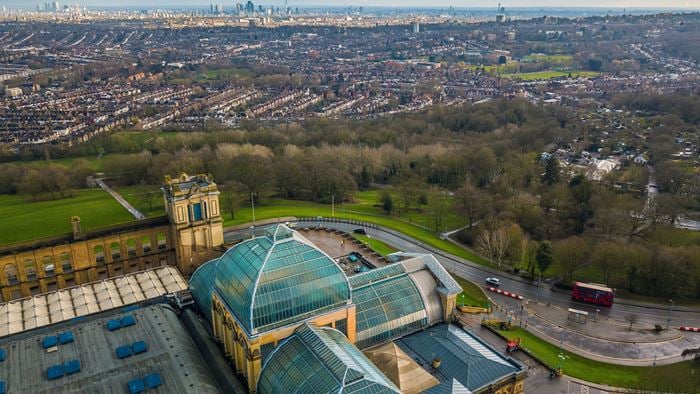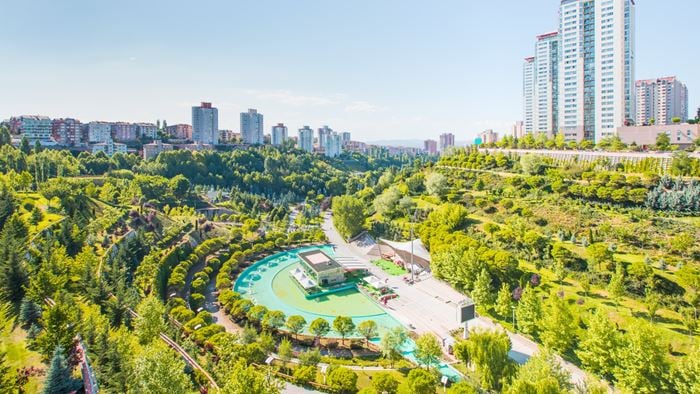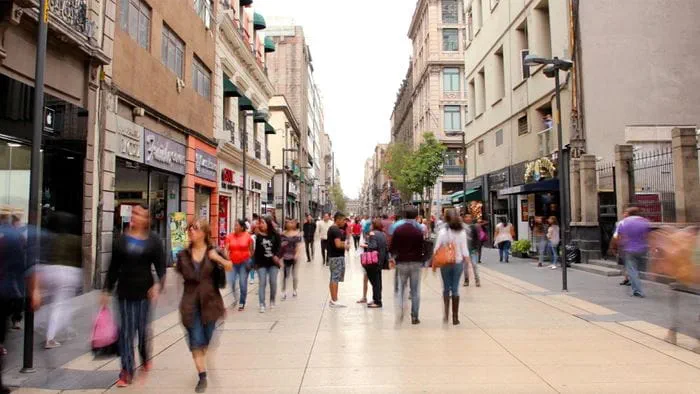Engaging the community and accelerating action in the face of intensifying impacts of the climate emergency is the focus for many local authorities around the UK. Rising energy costs have threatened to potentially push two-thirds of UK households into fuel poverty. The unprecedented heatwaves of summer 2022 led to fires across London and threatened lives, putting extra pressure on the NHS and care services supporting the elderly and vulnerable.
The London Borough of Waltham Forest is in the top 30 worst affected local authorities from heatwaves in England. As well as heatwaves, the borough was affected by flash floods in 2022 where local roads were submerged.
Waltham Forest London Borough Council launched its climate action strategy in 2008 and has been taking effective action but with the declaration of a climate emergency in 2019, there was recognition that they needed to do more and do it faster. Arup was appointed to bring additional multidisciplinary expertise and experience to the borough’s Climate Emergency and Behaviour Change department and develop a Climate Action Plan that would clearly outline how it would reach net zero by 2030 and build resilience to these impacts.
Project Summary
20 climate actions across four themes
84%reduction in borough emissions by 2030
24.5KTCO₂ereduction through retrofit
Assessing the deliverability of the borough's ambition
Arup’s multidisciplinary team of climate specialists, economists, user experience designers, mobility, nature and energy experts gathered data and analysed the key sources of carbon emissions that are generated across the borough to create a baseline. This helped to quantify the scale of the challenge, pinpoint where to focus and identify what would be needed in terms of resources, political will and collective community effort to realise the borough’s ambitions.
To inform early training sessions and shape the foundation of the plan, we built on our previous work developing Climate Action Plans for over 30 local authorities such as Lambeth Borough Council and Bristol City Council, City of London, Greater London Authority as well as the Green and Thriving Neighbourhoods Guidebook, developed by Arup in partnership with C40 Cities.
“By bringing a range of Arup’s multidisciplinary experts from urban design, circular economy and transport planning to ecology and economics to the workshops to assess ideas from a systemic viewpoint, we helped the Council’s different teams understand how actions in one system might affect another. For example, where shifting from gas boilers to heat pumps for more sustainable energy would also improve the air quality in the borough. ”
Max Russell Consultant
Engaging all stakeholders
We workshopped with the Council a range of ideas at various stages of maturity, from early idealistic and conceptual stages to interventions that they had succeeded with previously.
We brought together the Council’s different teams from housing, transport, business support and regeneration, to co-create the plan and unite the effort required at policy level for implementation. Throughout the project, a people-centred approach was taken to ensure the development of an engaging, resident-facing Plan.
“Moving forward, it is important to see this Climate Action Plan as the beginning, not the end, of engaging residents on climate action. Listening to all voices, especially younger generations, who need to share their view on what their future and careers in a green economy will look like is important. Mechanisms such as Citizen’s Assemblies can enable the Plan to evolve and grow, adapt to new scenarios and take advantage of emerging technologies. ” Jo Pricopi Climate and Sustainability Consultant, Arup
A plan for people and the planet
Drawing on the feedback from resident engagements and our experience of what other UK and international local governing bodies have found effective, we collaboratively prioritised the actions to narrow the focus on what would deliver the best outcomes for the investment.
The result is a Climate Action Plan with 20 impactful actions spread across four different themes:
-
Energy efficient buildings
-
A Place for People not Cars
-
Consuming Less, Recycling More
-
A Greener, More Resilient Borough.
The Plan is a blend of innovative and tried-and-tested solutions designed to take the Council to the next stage of implementation. For example, a key issue to address was the need to retrofit all fuel poor homes to improve their energy efficiency and reduce their fuel bills in the face of a growing cost of living crisis.
We drew upon our experience in the built environment and our work with other projects and organisations working in this field – such as BEIS, 3CIS, and the Green Finance Institute – to help shape approaches to retrofit throughout the borough. Actions include developing a Council-led retrofit company, retrofit loans for homes, and delivering retrofits for all fuel poor homes. Enabling factors were also explored covering skills, finance, technologies and policy.
Our user experience and behavioural experts helped to ensure the document itself is very visual, clear and accessible so that it will engage the different stakeholders needed to help realise the plan at pace.
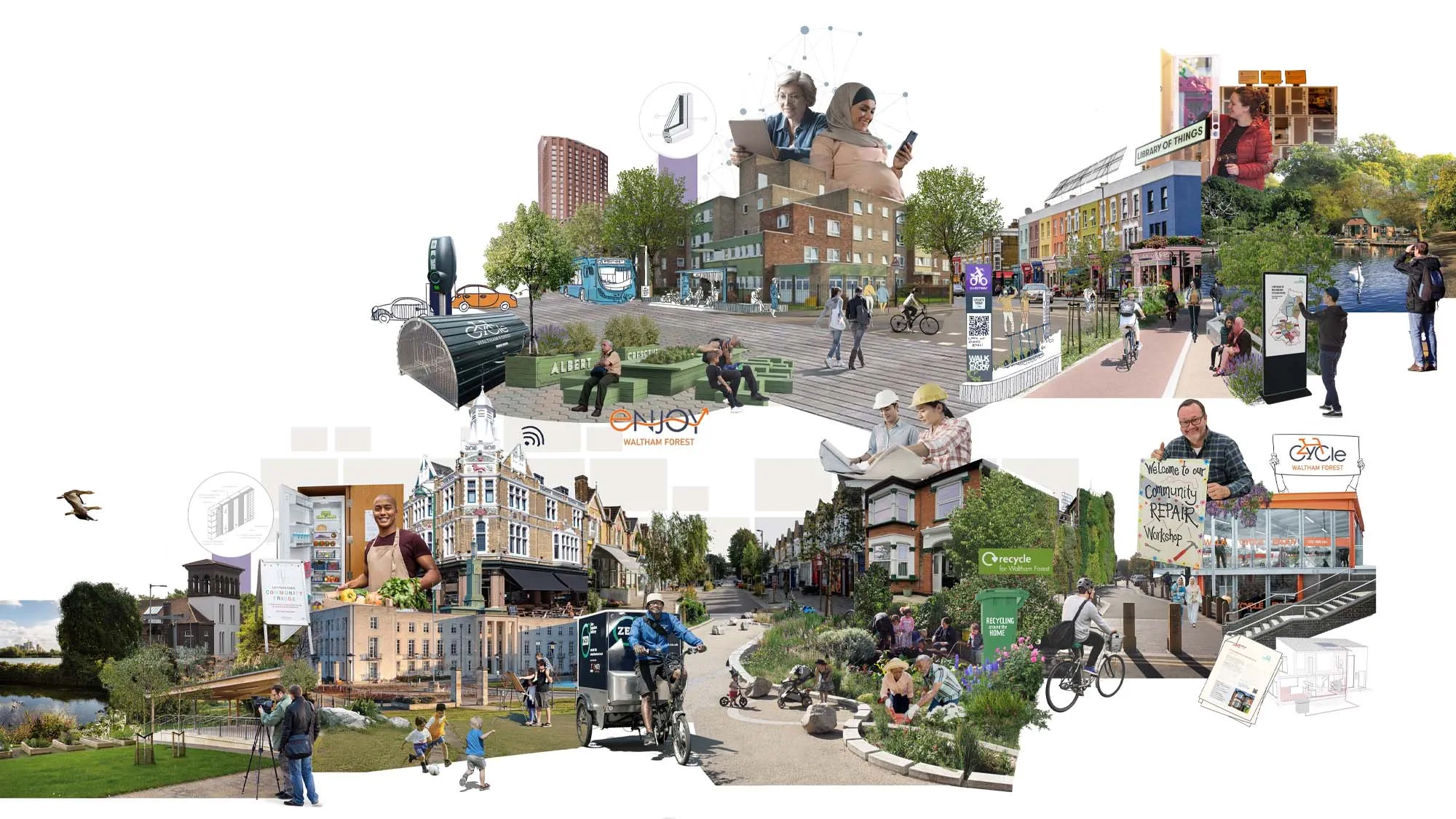
Realising broader benefits
Committed to reaching net zero carbon emissions by 2030, Waltham Forest Council sees climate action as part of improving the health and prosperity of its residents, especially in face of the cost of living crisis. As well as retrofitting all fuel poor homes, the Climate Action Plan includes redistributing surplus food to community provisions such as food banks and social supermarkets; establishing a Library of Things in every library; repurposing nine car parks for alternative uses such as affordable housing and parks and expanding access to shared transport options.
Climate action must resonate with those that it influences: the communities living and working in this borough. As such, the Plan created a dynamic and visual thriving vision of what a climate friendly Waltham Forest might look like in 2030. Bringing the Plan to life is a first, crucial step to advance adoption of the actions by the Council, residents and businesses throughout the borough.
“Arup has helped us to create a Climate Action Plan that will be of immediate, tangible benefit to our community. From green jobs and growth of the local economy to more active and happy lives, the Plan is ultimately a regeneration plan that builds on our local strengths. It will enable us to work together across the borough to continue to adapt and become more resilient to these climate impacts, while reducing emissions to avoid the worst of them. ” Luke Ravenscroft Director of Climate Emergency and Behaviour Change, London Borough of Waltham Forest Council
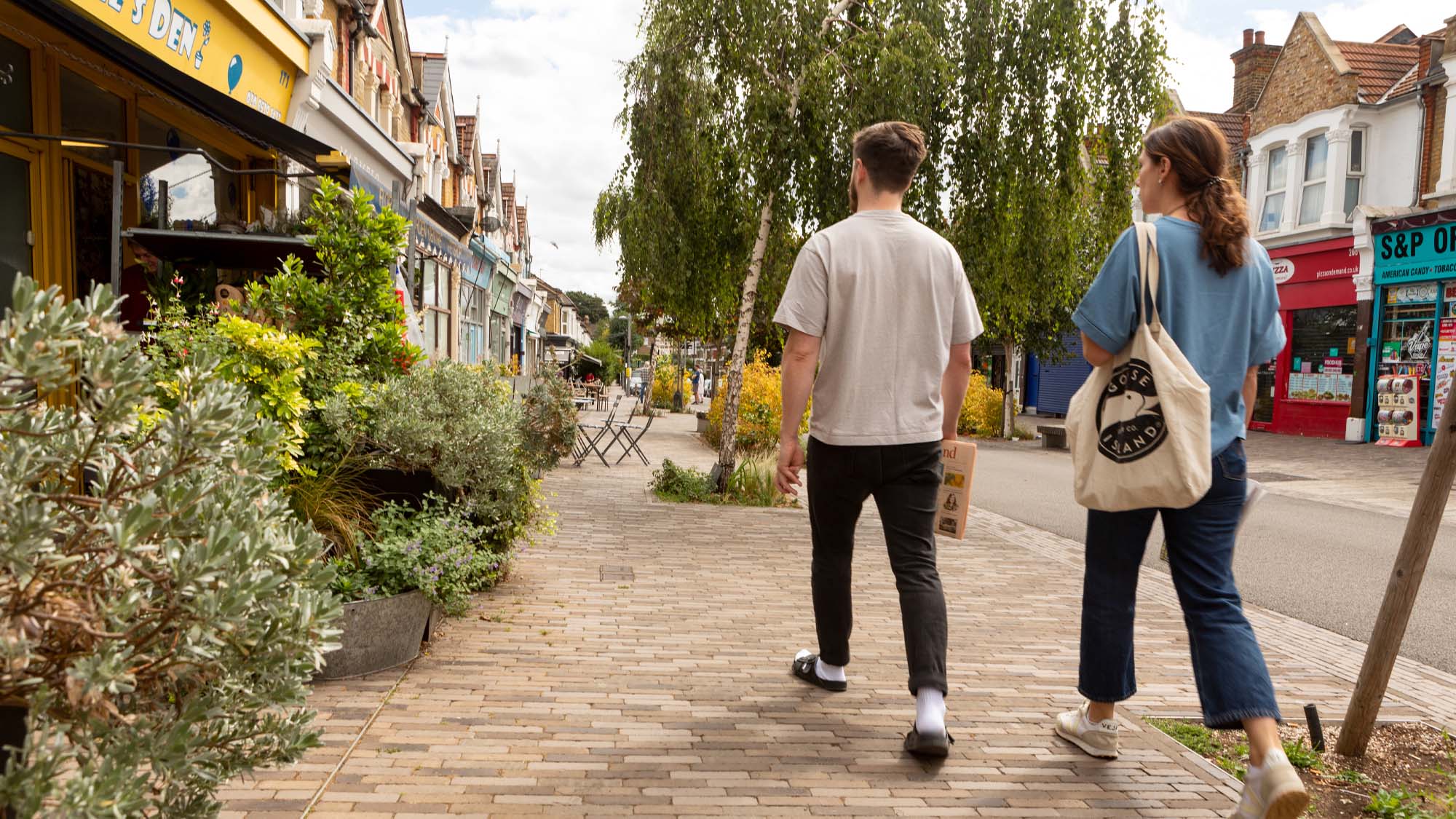 ;
;

